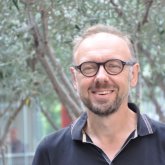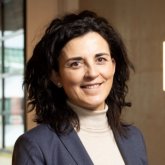Postdoc position on Form Adaptive Multilayer Engineering (FAME)
At the XUV Optics group, we are looking for an enthusiastic post-doctoral researcher to strengthen our team in developing multilayers that can “expand and/or shrink” upon application of heat with nm precision. This will require both fundamental understanding on the atomistic processes that take place upon deposition and subsequent heating, in order to predict and tailor the height changes of the surface, as well as a close collaboration with industry (ASML Berlin) to demonstrate that multilayers can meet their demanding specifications.
Staying in focus is a fundamental challenge in highly demanding optical systems where imaging plays a central role – from microscopes to telescopes, but also for advanced lithography. For the next-generation “hyper-NA” lithographic tool of ASML, the demands of keeping the wafer surface at the focal point of the imaging system will require innovative solutions to adapt the wafer surface position on the nm level! In order to have the wafer surface fully inside the depth of focus, height corrections of the order of 10-100 nm would be required, varying in absolute value over the surface of the wafer.
An elegant method to correct wafer position is to include an adaptive element into the wafer stage, which allows local modification of the surface height. A “form adaptive multilayer” would serve such purpose, where the local height of the multilayer should be able to be modified over the desired range. One method to achieve this is through thermal actuation, using a laser to locally heat the multilayer, where the applied heat creates a shrinkage (or expansion) of the heated materials. The challenge is to create such a “form adaptive multilayer”, matching industrial demands with scientific know-how, and thereby improving future lithographic applications!
Position Overview: You will create an adaptive multilayer that is capable of local shrinkage or expansion upon application of heat. The response should be predictable on the nm level from basic understanding of the processes involved during growth and heating.
Key Responsibilities:
- Develop an overview of available materials and the fundamental processes that can lead to either densification or expansion upon heating in two-material multilayer.
- Synthesize multilayers, tailoring their structure by varying deposition conditions and introducing e.g barrier layers in order to control their response to thermal activation
- Develop usage of metrology tools to characterize the structural changes inside the multilayer, connected to shrinkage or expansion.
- Collaborate with industrial partner to demonstrate functional behavior of the multilayer using localized heating.
The project will be carried out in collaboration with an ASML Berlin under the umbrella of the Industrial Focus Group XUV Optics at the university of Twente where a multidisciplinary research program on growth, characterization, and application of thin filmed devices primarily for optical application is being carried out.
Information and application
Your reaction should include an application/motivation letter, emphasizing your specific interest and motivation, a detailed CV, a publication list, contact details of referees, and an academic transcript of B.Sc. and M.Sc. education. An interview and a scientific presentation will be part of the selection procedure.
About the department
The XUV Optics group is embedded in the MESA+ Institute (www.mesaplus.utwente.nl), which is one of the largest nanotechnology research institutes in the world, delivering competitive and successful high-quality research. The institute employs 500 people of which 275 are PhD’s or PostDocs. With its unique NanoLab facilities the institute holds 1250 m2 of cleanroom space and state-of-the-art research equipment.
About the organisation
The Faculty of Science & Technology (Technische Natuurwetenschappen, TNW) engages some 700 staff members and 2000 students in education and research on the cutting edge of chemical technology, applied physics and biomedical technology. Our fields of application include sustainable energy, process technology and materials science, nanotechnology and technical medicine. As part of a people-first tech university that aims to shape society, individuals and connections, our faculty works together intensively with industrial partners and researchers in the Netherlands and abroad, and conducts extensive research for external commissioning parties and funders. Our research has a high profile both in the Netherlands and internationally and is strengthened by the many young researchers working on innovative projects with as doctoral candidates and post-docs. It has been accommodated in three multidisciplinary UT research institutes: Mesa+ Institute, TechMed Centre and Digital Society Institute.





